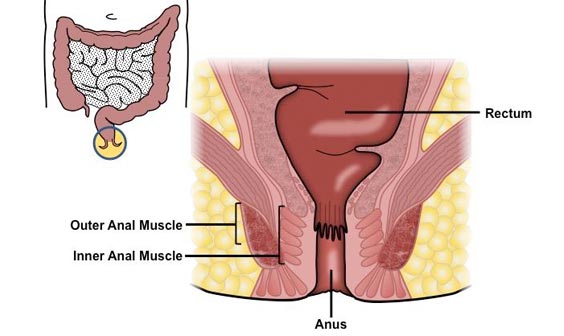Symptoms of Anal Cancer
As many as 20% of patients with anal cancer may not have symptoms. The following symptoms can be seen with anal cancer, but may also be caused by less serious conditions such as hemorrhoids.
- Bleeding from the anus or rectum
- Pain in the anal area
- A mass or growth in the anal opening
- Lasting anal itching
- Change in bowel habits, e.g. having more or fewer bowel movements or more straining during a bowel movement
- Narrowing of the stools
- Discharge, mucous, or pus from the anus
- Swollen lymph glands in the anal or groin area
Major Causes
Anal cancer forms when a genetic mutation turns normal, healthy cells into abnormal cells. Healthy cells grow and multiply at a set rate, eventually dying at a set time. Abnormal cells grow and multiply out of control, and they don't die. The accumulating abnormal cells form a mass (tumor). Cancer cells invade nearby tissues and can separate from an initial tumor to spread elsewhere in the body (metastasize).
Diagnosis of Anal Cancer
Many anal cancers are found early because they are in a location that your physician can easily see and reach. Diagnosis is often made when people with any of the above symptoms undergo an anal exam. Anal cancer may also be found incidentally during yearly physical exams that include a digital rectal exam. The rectal exam is performed to check the rectum, prostate or other pelvic organs. Anal cancers can also be found when a person has a preventive colorectal screening test (such as a colonoscopy).
Treatment for Anal Cancer available at Santhosh Hospital
Most cases of anal cancer have high cure rates when treated early. There are three basic types of treatment:
- Surgery – an operation to remove the cancer
- Radiation therapy – high-dose X-rays that kill cancer cells
- Chemotherapy – drugs that kill cancer cells
Sometimes, very small or early-stage tumors may be removed surgically without the need for further treatment. If the cancer is advanced, major surgery may be required to remove the tumors.



